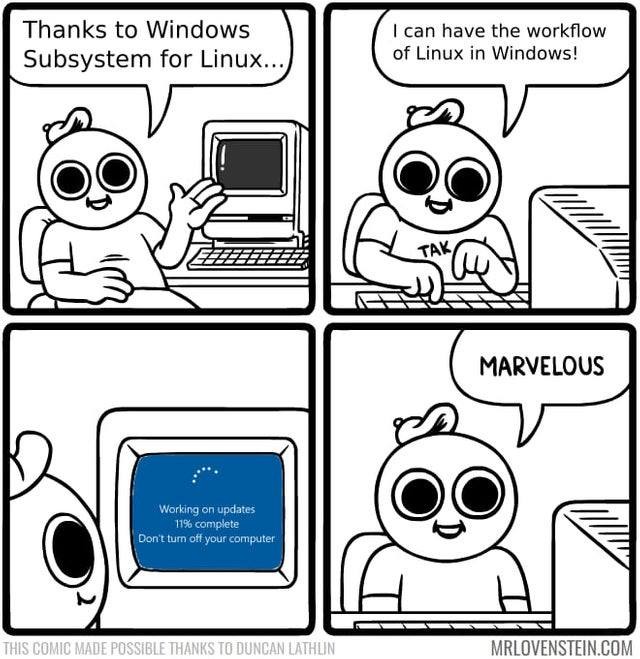this post was submitted on 24 Oct 2023
1716 points (96.9% liked)
Memes
45132 readers
3258 users here now
Rules:
- Be civil and nice.
- Try not to excessively repost, as a rule of thumb, wait at least 2 months to do it if you have to.
founded 5 years ago
MODERATORS
you are viewing a single comment's thread
view the rest of the comments
view the rest of the comments

You do have to reboot to use your new kernel after an update. But it's just a normal reboot, not the whole blocking installation process like in Windows.
And a Linux reboot takes like 40s at most and everything works. Where in Windows it takes like 2m to be able to log in and a good 5-10m for all the apps to start working at normal speed
Not always, but mostly yeah. Especially for home users, it's not worth the hassle.
Same thing canonical pushes with Ubuntu pro right?
kpatchis what RHEL uses. The Ubuntu one is calledlivepatch. IIRC, it's not open source.Aren't there distros that treat the kernal like anyother package and can hot swap it?
you can't really hot swap the kernel, because all of the system runs on it.
you'd need to stop the system (you can save its state and recover where you left), reboot to load the new kernel and let it take control.
however, there are some distros and programs that allow you to hot swap certain parts of the kernel (mainly drivers) without rebooting. Note that, even though the system doesn't reboot, most packages still need to be restarted for them to pick up the new driver.
Not quite like that but there is a thing called live patching that some distros offer. It's mainly to used fix security issues rather than a typical update
Ubuntu livepatching and kpatch are some different tools out there for that if you want to look into it